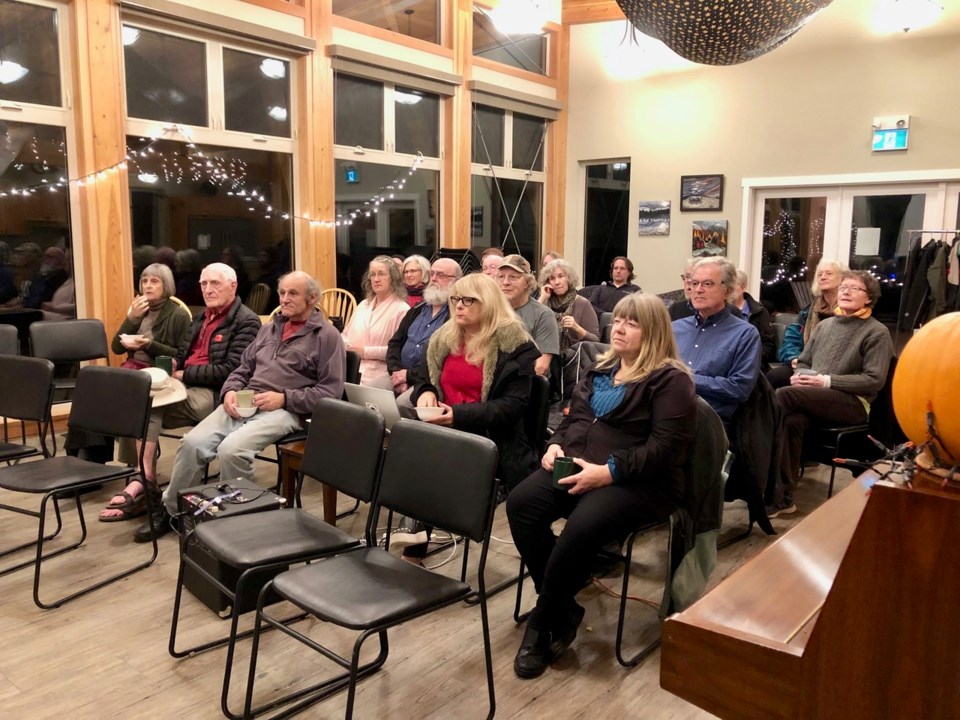On November 10, 30 people gathered in the common house at Belterra for an event called “War, Remembrance and Reconciliation: Creating a Peaceful Future for All.” We watched the award-winning documentary Village of Widows about the Sahtu Dene people from the village of Deline on the banks of Great Bear Lake, many of whom died from radiation poisoning due to their work mining and transporting uranium ore. When they learned that the ore they had mined was used, unbeknownst to them, in the creation of the atom bombs dropped on Hiroshima and Nagasaki, they were horrified. They wanted to make what reparations they could.
Believing that all people are sisters and brothers in humanity, in 1998 a group from Deline travelled to Japan to meet with survivors of the bomb and participate in the annual Hiroshima Peace Memorial Ceremony. Amongst the many extraordinary images in this film, the most outstanding one for me is the many thousand glowing peace message paper lanterns set afloat on the Motayasu River in evening’s darkness to console the spirits of the dead.
Following the film, we had a community conversation on the impact of war on each of us. It was deeply moving to both witness the film and hear what each person present shared afterward. What was striking in the stories was that there was no one at our gathering whose family had not been impacted by war, either directly or indirectly.
Several of those present had lost family members in the Second World War Jewish Holocaust. Many others had fathers and grandfathers who had fought with the Allies in the First or Second World Wars. Still others came from families who had been on the “other side.” Ellen Hayakawa had family on all sides of the Second World War. Her grandparents and parents, loyal Canadian citizens, were wrongfully incarcerated by the Canadian government. Ellen shared the story in her great aunt Sumie Shiraishi’s words of surviving the Hiroshima bomb and its horrors. She wore the kimono sewed for her by Sumie Shiraishi in remembrance of all who have died in wars and all those who survived with trauma post-war. Sharing of all these unique stories revealed our common humanity. We ended the night on a hopeful, inspiring note with each person in the circle saying what they feel they can do in their lives to move toward a more peaceful future for all.



